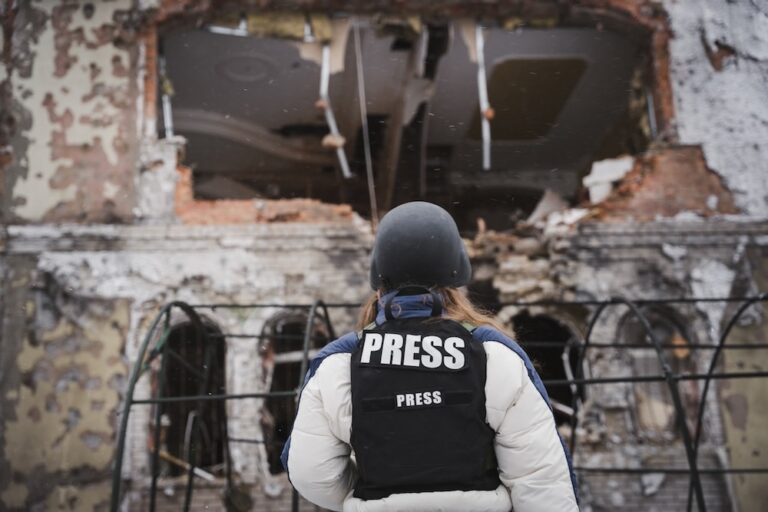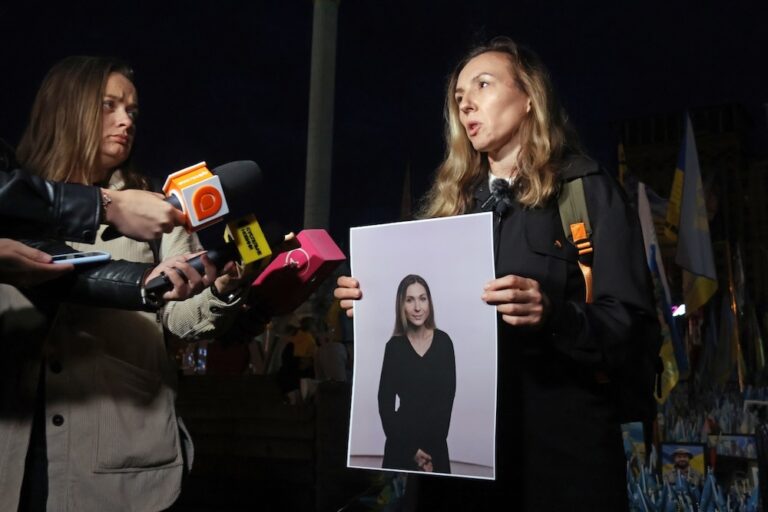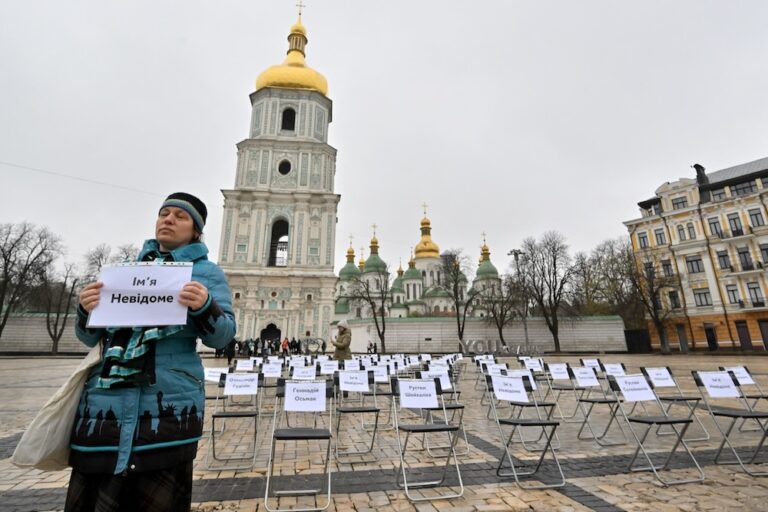(RSF/IFEX) – A Kiev court’s decision to freeze the financial assets of Ukraine’s only opposition television station, Kanal 5, because of a defamation suit is “totally abnormal and very disturbing,” said RSF. The move comes just two weeks before the presidential election. The station’s bank accounts were frozen on 18 October 2004 as a result […]
(RSF/IFEX) – A Kiev court’s decision to freeze the financial assets of Ukraine’s only opposition television station, Kanal 5, because of a defamation suit is “totally abnormal and very disturbing,” said RSF. The move comes just two weeks before the presidential election.
The station’s bank accounts were frozen on 18 October 2004 as a result of an action brought by independent parlementarian Volodymyr Sivkovitch against one of Kanal 5’s owners, opposition parlementarian Petro Porochenko.
“It is unacceptable that a news organisation and its journalists should have to pay the price for a political dispute between two parliamentarians,” RSF said. “We hope that, on appeal, the justice system will overturn this disproportionate decision, the consequences of which are very dangerous for media diversity in Ukraine.”
Claiming that freezing Kanal 5’s accounts was the only way to get Porochenko to apologise, Sivkovitch said he did not want to wage a “war on journalists.”
Kanal 5 chairman Vladislvav Liassovski described the case as political. “We are the only Ukrainian television station to offer the airwaves both to sectors that support the government and to the opposition, and the authorities do not like that,” he said to Agence France-Presse.
Kanal 5 news director Andriy Chevchenko told RSF that the station has had major problems broadcasting outside the capital, especially in the east of the country, Prime Minister Viktor Ianoukovitch’s home region. Ianoukovitch is the ruling party candidate in the 31 October presidential election.
Chevchenko said the refusal of several regional operators to broadcast Kanal 5’s programmes was politically motivated. Another blow to Kanal 5 came on 14 October when it lost its licence to broadcast its programmes in the Kiev area.


